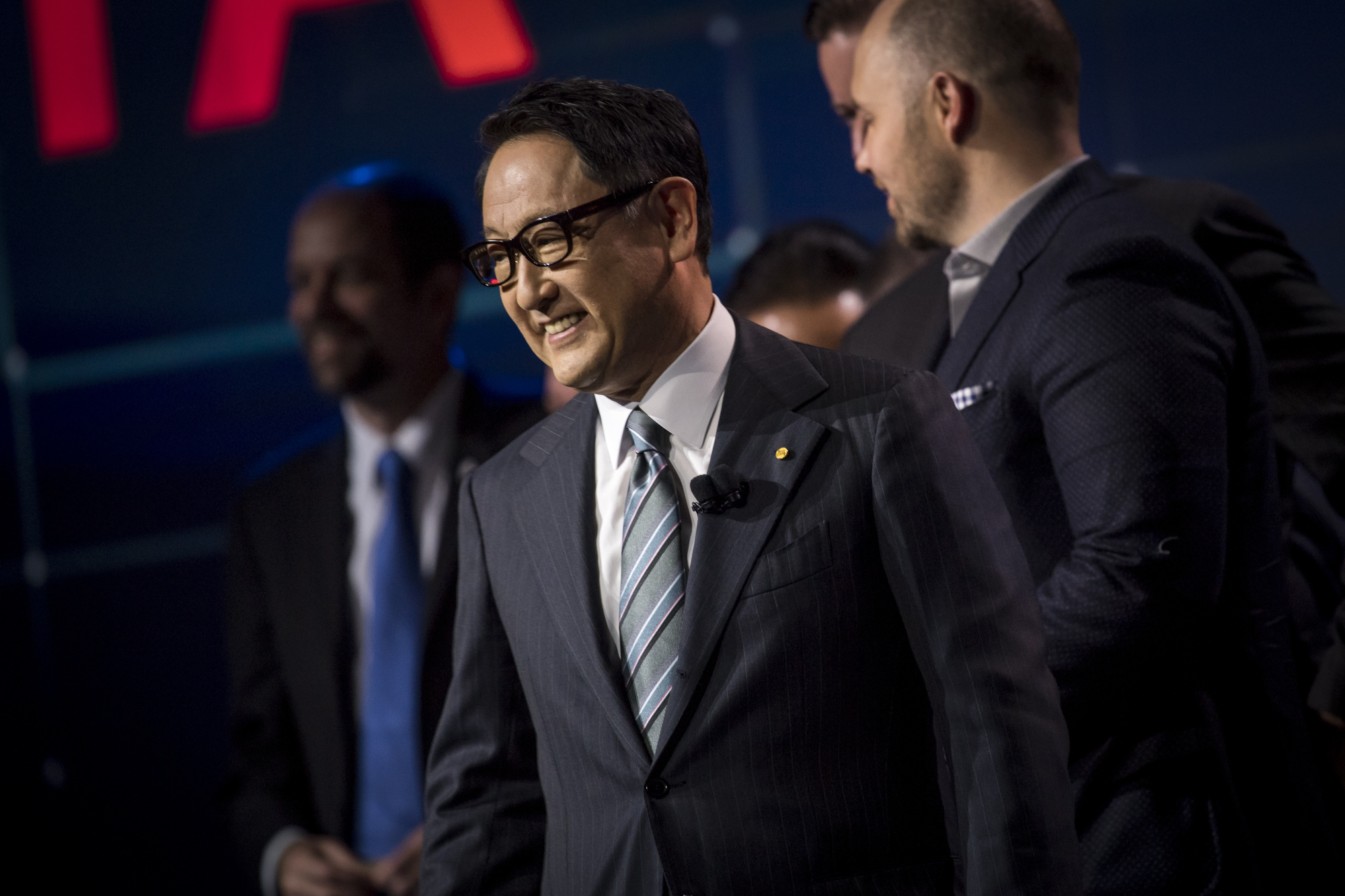At a New Year's party, Prime Minister Shinzo Abe made a plea to business leaders: Raise wages by 3 percent to support Japan's economy. The request was met with a polite silence. "Let me take that as no objection," the prime minister said.
Among those present was Toyota Motor Corp. President Akio Toyoda, the person with the most power to make Abe's wish come true, especially after the nation's biggest company forecast a record profit. But Toyoda fended off reporters' questions about wages after the Jan. 5 party, saying the company preferred the time-honored way of negotiations with its labor union.
His answer goes to the heart of why years of massive monetary stimulus and the tightest labor market since the 1970s have failed to fix the country's anemic inflation. Without the prospect of higher pay, households will continue to choose saving over spending, retailers will hold down prices and companies will seek expansion abroad rather than at home.


















With your current subscription plan you can comment on stories. However, before writing your first comment, please create a display name in the Profile section of your subscriber account page.